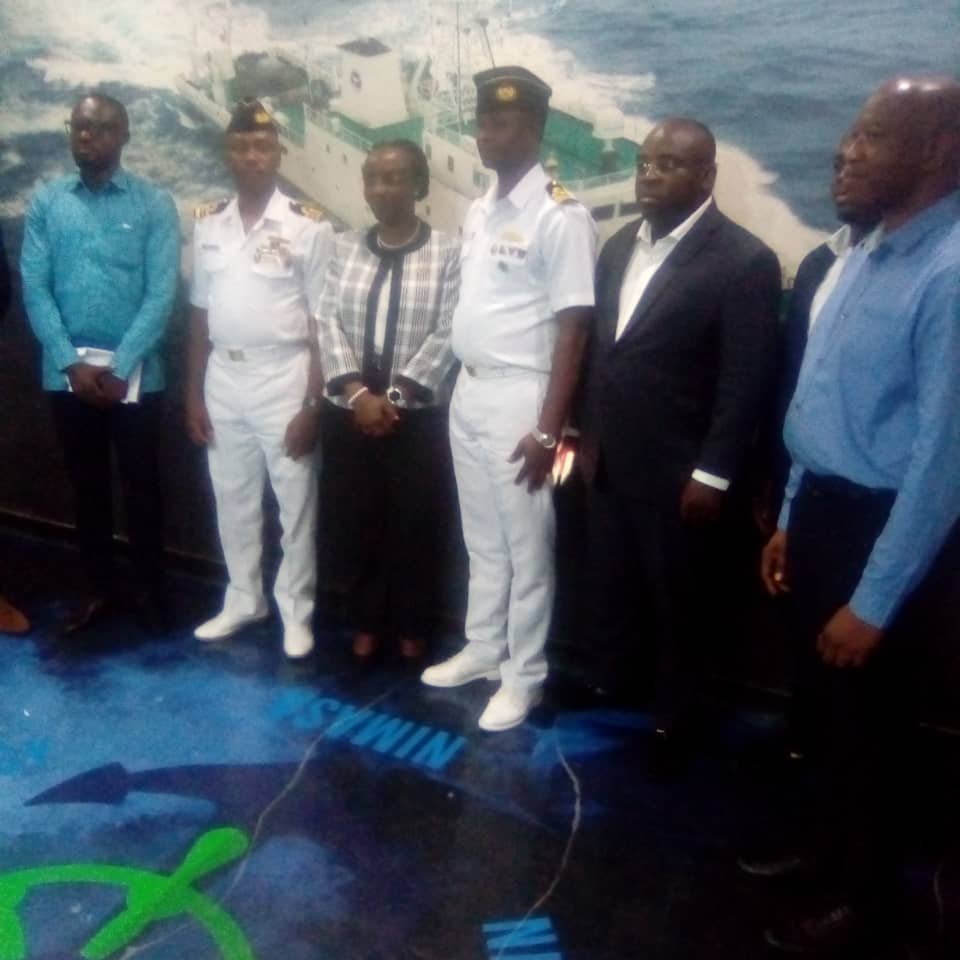· As Jamoh Pledges To Sustain Tempo
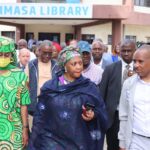
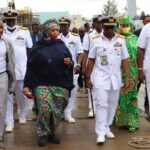
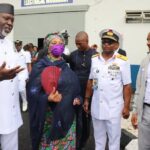
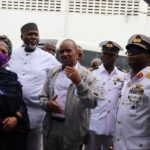 Minister of State for Transportation, Gbemisola Ruqayyah Saraki has embarked on a tour of facilities and assets of the Nigerian Maritime Administration and Safety Agency (NIMASA) including NIMASA Command, Control and Computer Centre (C4i), Modular Floating Dockyard, e-Library and vessels undergoing dry docking at the Naval Dockyard on Victoria Island, Lagos.
Minister of State for Transportation, Gbemisola Ruqayyah Saraki has embarked on a tour of facilities and assets of the Nigerian Maritime Administration and Safety Agency (NIMASA) including NIMASA Command, Control and Computer Centre (C4i), Modular Floating Dockyard, e-Library and vessels undergoing dry docking at the Naval Dockyard on Victoria Island, Lagos.
Saraki expressed delight at NIMASA’s equipment and assets stating that they underscored the importance the Federal Government attaches to combating maritime crimes and ensuring zero tolerance for illegal activities on the nation’s territorial waters.
While commending the synergy and collaboration among the various government agencies in the maritime sector, the minister expressed delight at the fact that Nigeria has experienced piracy-free waters since 2022.
Her words: “For over 28 years, we have been in the press for the wrong reasons over piracy issues in the Gulf of Guinea (GoG). We were there when President Muhammadu Buhari commissioned the Deep Blue Project last year and within that short time, we have broken the jinx and for the last five months zero attacks. So, that says it all for my assessment of NIMASA.”
Furthermore, Saraki noted the need to sustain the momentum was to ensure that Nigeria remained attractive to investors, adding that the ministry is delighted at the steps NIMASA is taking to address the War Risk Insurance premium on Nigerian-bound cargoes.
“The most important thing now is that we don’t rest on our oars. The Africa Continental Free Trade Agreement (AfCTA) and how it affects Nigeria is our focus. We hope to create an enabling environment to be attractive and highly competitive when compared to neighbouring countries and collaboration among all maritime agencies of government in terms of information gathering and sharing remain key in achieving this,” she said.
On his part, the Director-General of NIMASA, Dr Bashir Jamoh, disclosed that the focus of the agency was on sustaining the achievements in recent times, adding that plans were in three categories of short medium and long term.
“Our focus now is to sustain the tempo. We are very optimistic that the clamour for removing war risk insurance premiums on Nigerian-bound cargos will soon yield positive results. The international community desires sustainability of Nigeria’s war on piracy and maritime crimes. The good thing is that they are part and parcel of our processes and procedures.
“We have the Nigeria Joint Industry Working Group where all stakeholders including the INTERTANKO, the largest owners of tankers in the world, the INTERCARGO, the largest owners of cargos in the world and the major oil marketing companies are meeting regularly and discussing developments in the Nigerian Maritime industry.
“We have also strengthened our collaboration with the Nigerian Navy. The SHADE Gulf of Guinea is another platform where inter-regional organisations, such as the ICC and the European Union (EU) foster collaboration in securing the Gulf of Guinea.”
He explained that although Nigeria was removed from the red list of piracy nations on March 3 this year, it was natural that the international community still desired sustainability.
“Our hope is that by September this year, the issue of War Risk Insurance will be addressed when the Lloyd’s of London, coordinators of insurance surcharges on Nigerian bound cargoes meet to deliberate on our position paper, which highlights the short, medium and long-term plans to sustain the achievements in our war against piracy in Nigeria,” he added.
 The New Experience Newspapers Online News Indepth, Analysis and More
The New Experience Newspapers Online News Indepth, Analysis and More
